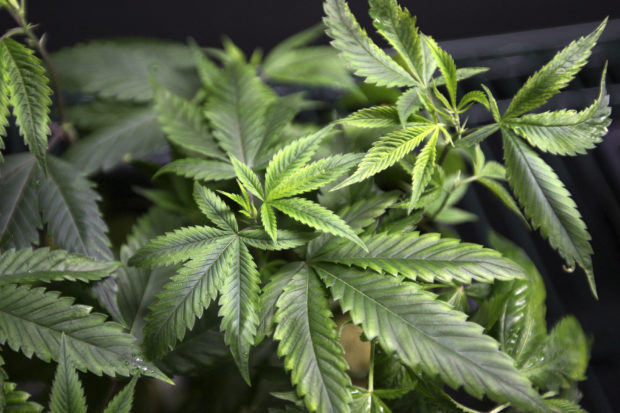Group seeks creation of national medical marijuana agency

(REUTERS / file photo)
MANILA, Philippines — Philippine Society of Cannabinoid Medicine founder and president Dr. Gem Marq Mutia on Thursday said the national government should allow the creation of a national cannabis agency.
Mutia, during a joint hearing on Senate Bill No. 230, known as the Medical Cannabis Compassionate Access Act of the Philippines, said the national cannabis agency should be called the Philippine Medical Cannabis Agency, which will be under the Department of Health.
Mutia said the agency should be made up of the following: medical cannabis advisory committee (MCAC), clinical indications committee (CIC), quality control committee (QCC), research and development committee (RDC), and security committee.
“We suggest including the Department of Science and Technology [and] Agriculture to be permanent or regular members of the MCAC. [This should not be limited to the] Dangerous Drugs Board, Food and Drug Administration, [and] Department of Health. Our society is also willing to nominate one of the three healthcare practitioners to be part of the regular members of the MCAC,” said Mutia.
He explained that CIC would be tasked with creating clinical practice guidelines, including narrowing or broadening the list of debilitating medical conditions in Section 3D of the bill.
Article continues after this advertisement“The CIC will also undertake the training of physicians for them to be competent in identifying qualified patients, guiding them with treatment, recognizing signs of problematic use or diversion,” he said.
Article continues after this advertisementThe security committee will be responsible for securing the entire supply chain as well as approving employment of workers.
QCC, on the other hand, will be responsible for cultivating, manufacturing, and dispensing medical-grade cannabis products, while the RDC will be tasked with forming medical-grade cannabis products and their subsequent clinical trials.
“Due to the liberalization of non-medical use in western countries, there is less incentive for multinational pharmaceutical companies to invest [in] clinical trials. This is a momentous opportunity for drug development in our country to be state-sponsored, unlike what is happening now where in 99 percent of our medicines are from private pharmaceutical investment,” explained Mutia, adding that the local development of “local land raised” cannabis should also be implemented instead of prioritizing the proposed importation of its seeds.
“It has been almost 10 years since the first medical cannabis bill has been filed in Congress. In that time, millions of patients abroad have been made to suffer less. We hope and pray for the immediate passage of this important legislation,” Mutia said.
Senator Robinhood Padilla, who presided over the joint hearing, commended Mutia’s suggestions, specifically the local production of medical cannabis. Still, the lawmaker noted that research must be done before it can be conducted.
Mutia said research is no longer necessary to create a national cannabis agency.
“Sa tingin ko ay hindi naman natin kailangan mag research bago muna gumawa ng national medical cannabis agency. Kapag nabuo na [ito] na merong RDC, ‘yun ang gagamiting research natin para sa pag formulate ng mga gamot,” he concluded.
(I don’t think we must research before creating a national medical cannabis agency. Once the agency that already has an RDC is formed, that’s the research we will use to formulate drugs.)
In the same hearing, Padilla said Israel should be a model for the Philippines in allowing the use of cannabis for medical purposes.
“Israel is renowned as a country with the clearest laws and regulations on medical cannabis. They have the most comprehensive research on the matter. On the enforcement of laws, nothing can beat Israel. What we learned from our study tour of Israel, we will include in our proposed measure on medical cannabis in the Philippines,” the lawmaker said.